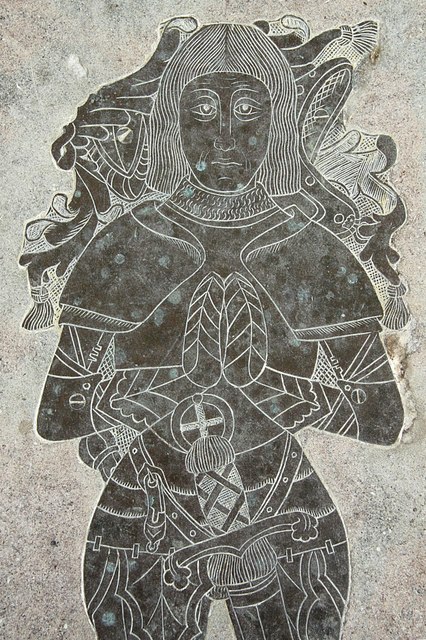|
Everard Digby (other)
Everard Digby (c. 1578–1606) was a plotter in the Gunpowder Plot. Everard Digby may also refer to: * Everard de Digby (died at Towton, 1461), MP 1446 and High Sheriff of Rutland This is a list of sheriffs and high sheriffs of the English county of Rutland. The sheriff is the oldest secular office under the Crown: there has been a Sheriff of Rutland since 1129. Formerly the sheriff was the principal law enforcement offic ... 1459 * Everard Digby (scholar) (born c.1550) * Everard Digby (died 1509), MP for Rutland * Everard Digby (died 1540) (born by 1472), MP for Rutland 1529 {{hndis, Digby, Everard ... [...More Info...] [...Related Items...] OR: [Wikipedia] [Google] [Baidu] |
Everard Digby
Sir Everard Digby (c. 1578 – 30 January 1606) was a member of the group of provincial English Catholics who planned the failed Gunpowder Plot of 1605. Although he was raised in a Protestant household, and married a Protestant, Digby and his wife were converted to Catholicism by the Jesuit priest John Gerard. In the autumn of 1605, he was part of a Catholic pilgrimage to the shrine of St Winefride's Well in Holywell. About this time, he met Robert Catesby, a religious fanatic who planned to blow up the House of Lords with gunpowder, killing James I. Catesby then planned to incite a popular revolt, during which a Catholic monarch would be restored to the English throne. The full extent of Digby's knowledge of and involvement in the plot is unknown, but at Catesby's behest, Digby rented Coughton Court and prepared a "hunting party", ready for the planned uprising. The plot failed, however, and Digby joined the conspirators as they took flight through the Midlands, failing to ga ... [...More Info...] [...Related Items...] OR: [Wikipedia] [Google] [Baidu] |
Everard De Digby
Everard de Digby or Everard Digby (1410–1461) was an English politician. He was a Member (MP) of the Parliament of England for Huntingdonshire in the Parliaments of 1439-40 and 1445–46, and for Rutland in the Parliaments of 1447, February 1449, 1449–50, 1450–51, and 1459. He fought on the Lancastrian side at the Battle of Wakefield and at the Battle of Towton, where he was killed. His estates were attainted, but his son Everard Digby Sir Everard Digby (c. 1578 – 30 January 1606) was a member of the group of provincial English Catholics who planned the failed Gunpowder Plot of 1605. Although he was raised in a Protestant household, and married a Protestant, Digby and his w ... successfully had the attainder lifted in 1472. References 1410 births 1461 deaths English MPs 1439 English MPs 1445 English MPs 1447 English MPs February 1449 English MPs November 1449 English MPs 1450 English MPs 1459 {{15thC-England-MP-stub ... [...More Info...] [...Related Items...] OR: [Wikipedia] [Google] [Baidu] |
High Sheriff Of Rutland
This is a list of sheriffs and high sheriffs of the English county of Rutland. The sheriff is the oldest secular office under the Crown: there has been a Sheriff of Rutland since 1129. Formerly the sheriff was the principal law enforcement officer in the county but over the centuries most of the responsibilities associated with the post have been transferred elsewhere or are now defunct, so that its functions are now largely ceremonial. Under the provisions of the Local Government Act 1972, on 1 April 1974 the office previously known as sheriff was retitled high sheriff. The high sheriff changes every March. After some 22 years as part of Leicestershire, Rutland was split away in 1996 as a unitary authority with its own shrievalty, thus establishing the separate High Sheriff of Rutland. Sheriffs 1100–1200 *1129: William de Albeni, the Breton *1155: Richard de Humez *1156: Thomas Ondeby *1157: Robert filius Goboldi *1159: Richard de Humez *1161: Robert filius Goboldi *1163: ... [...More Info...] [...Related Items...] OR: [Wikipedia] [Google] [Baidu] |
Everard Digby (scholar)
Everard Digby (born c. 1550) was an English academic theologian, expelled as a Fellow of St John's College, Cambridge for reasons that were largely religious. He is known as the author of a 1587 book, written in Latin, that was the first work published in England on swimming; and also as a philosophical teacher, writer and controversialist. The swimming book, ''De Arte Natandi'', was a practical treatise following a trend begun by the archery book ''Toxophilus'' of Roger Ascham, of Digby's own college. According to Eugene D. Hill, in Digby's ''Theoria Analytica'' of 1579, Life Born about 1550, he matriculated as a sizar of St John's College, Cambridge, 25 October 1567; was admitted a scholar 9 November 1570; proceeded B. A. 1570-1, M.A. 1574, and B.D. 1581; and became a Lady Margaret fellow on 12 March 1572-3, and senior fellow 10 July 1585. He was principal lecturer in 1584. Digby took part in the college performance of Thomas Legge's ''Richardus Tertius'' in 1580. Before t ... [...More Info...] [...Related Items...] OR: [Wikipedia] [Google] [Baidu] |
Everard Digby (died 1509)
Everard Digby (1440 – died 1509) was an English politician. The son of Everard de Digby (d. 1461), he was a Member (MP) of the Parliament of England The Parliament of England was the legislature of the Kingdom of England from the 13th century until 1707 when it was replaced by the Parliament of Great Britain. Parliament evolved from the great council of bishops and peers that advised ... for Rutland in 1478 and 1491–92, and probably also 1484. His son, Everard Digby (died 1540), was also MP for Rutland. References 1440 births 1509 deaths English MPs 1478 English MPs 1491 {{15thC-England-MP-stub ... [...More Info...] [...Related Items...] OR: [Wikipedia] [Google] [Baidu] |


